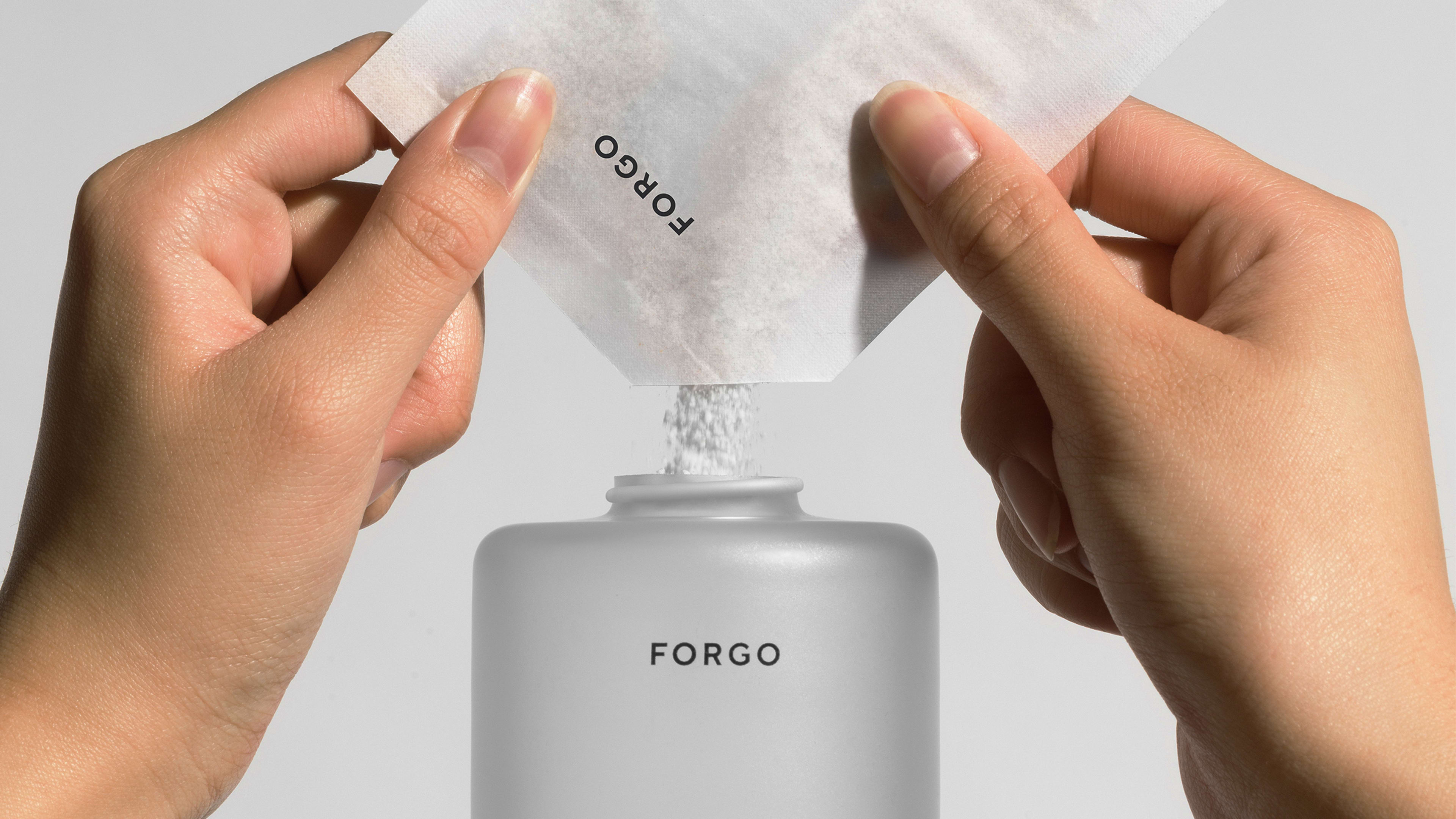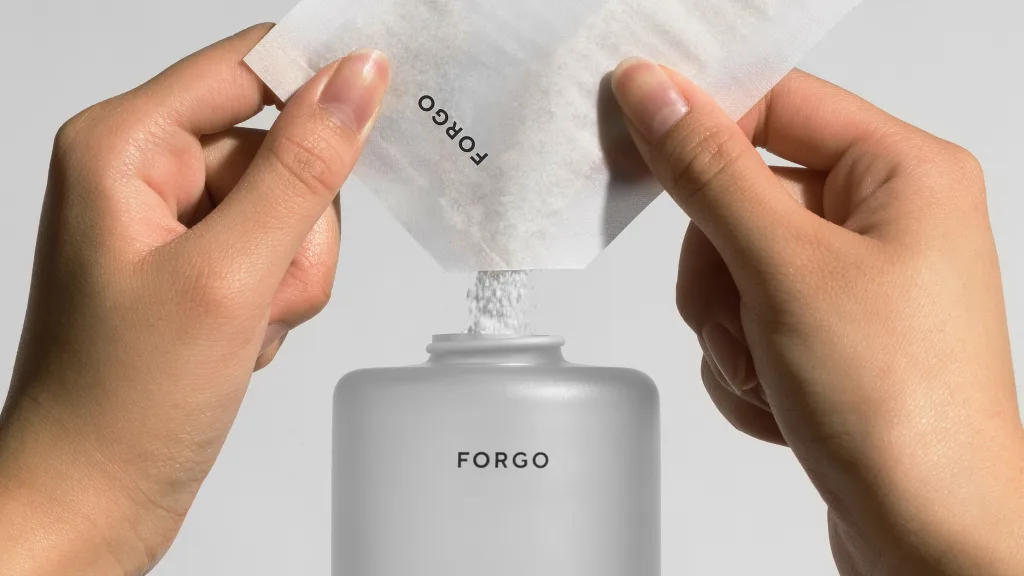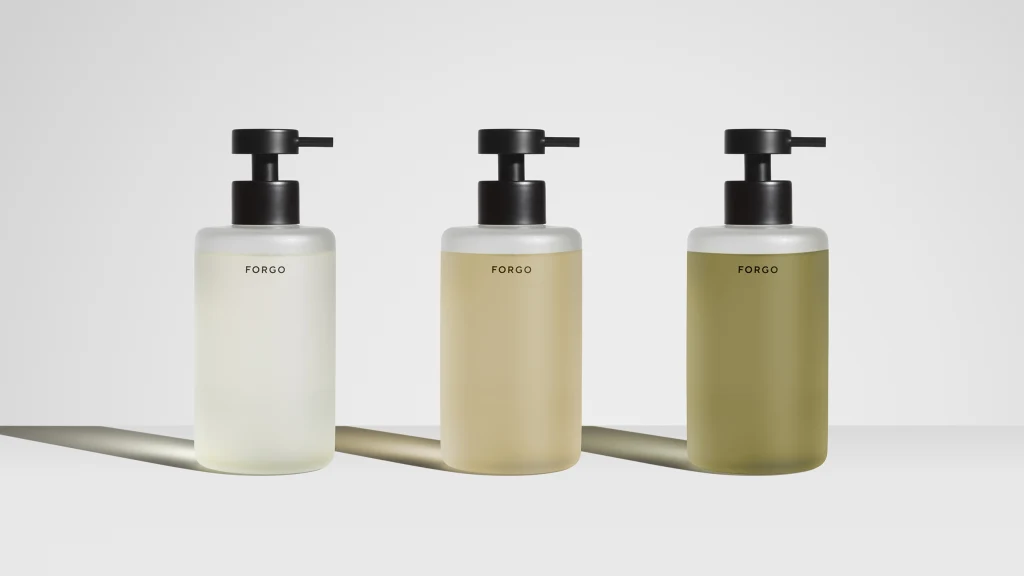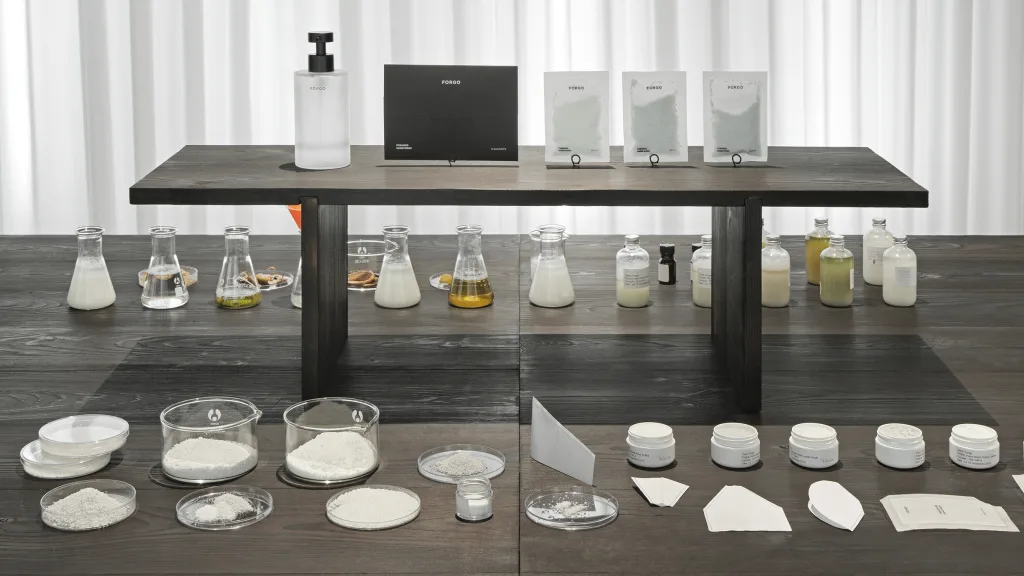When you buy a supply of Forgo’s new liquid hand wash, you won’t get a single-use plastic bottle, just a small envelope. But if you tear open the paper sachet, pour the powder inside into a reusable bottle, add tap water, and shake, you’ll have foaming hand wash in less than a minute.
Forgo is an in-house project from the Stockholm-based design studio Form Us With Love, and the soap is just the first in a line of products that the company wants to redesign to shrink packaging waste. “Our methodology is applicable to everything from deodorant to toothpaste to shampoos and face wash and conditioner and so on,” says Allon Libermann, who is leading the project at the design firm. “We are looking to accelerate the process of transforming all of those products into this kind of thinking.”
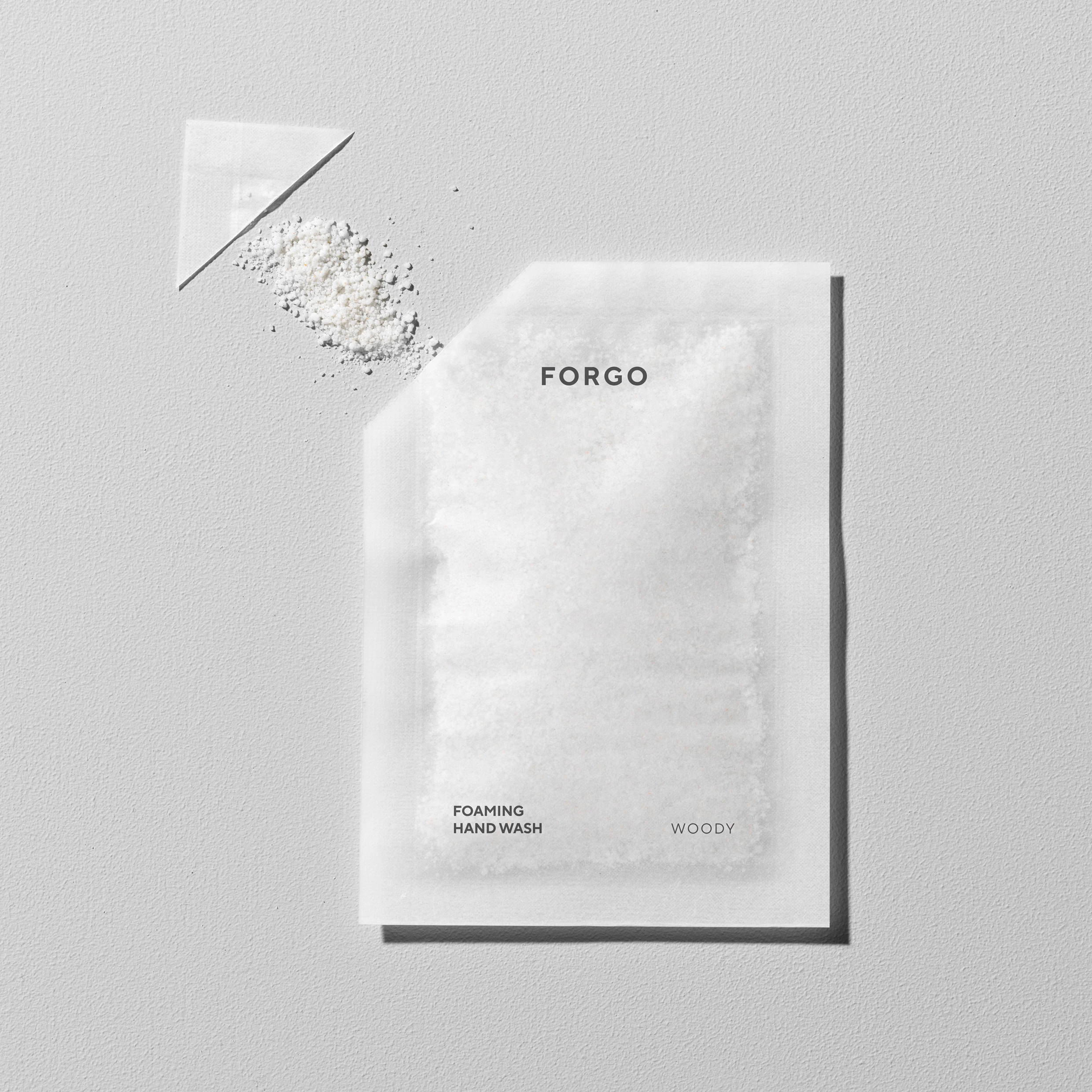
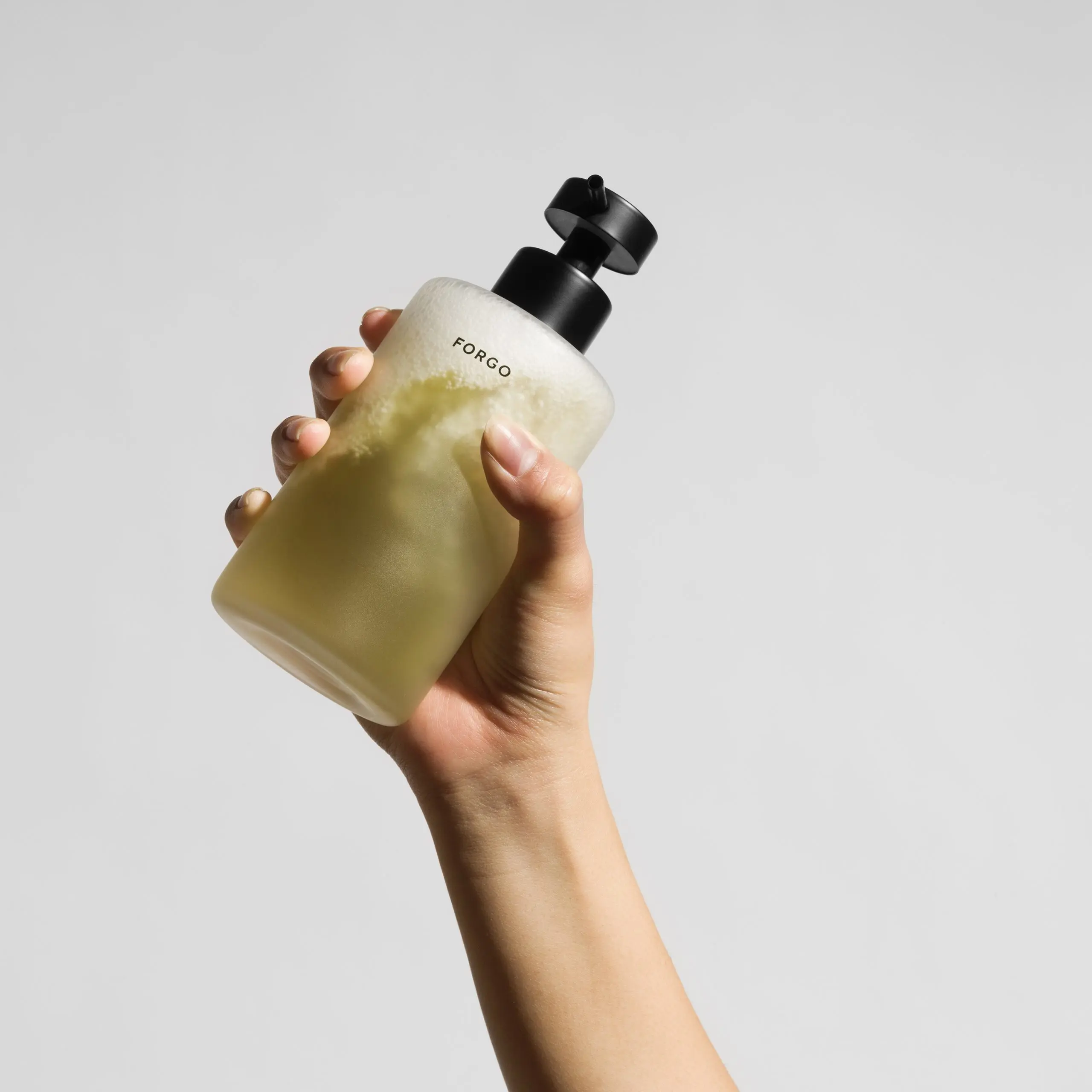
Forgo decided to start with hand soap as its first product. Bar soap already exists, of course, and doesn’t require a bottle. But the company recognized that fewer consumers are buying it. “Bar soap is a continuously shrinking part of the hygiene market,” Libermann says. “Once plastic bottles grew in popularity post-World War Two, so did liquid soaps and detergent.” Liquid soap now accounts for more than 70% of the market. The designers worked with chemists to create a simple formula for a powder that could be mixed with hot water to make liquid soap; their reusable bottles turn the soap into foaming hand wash. It takes only 12 grams of powder to fill a 250-milliliter bottle—an illustration of the fact that products of this type mostly contain water, meaning that most of the carbon footprint of shipping them comes from shipping water that could have come from someone’s tap.
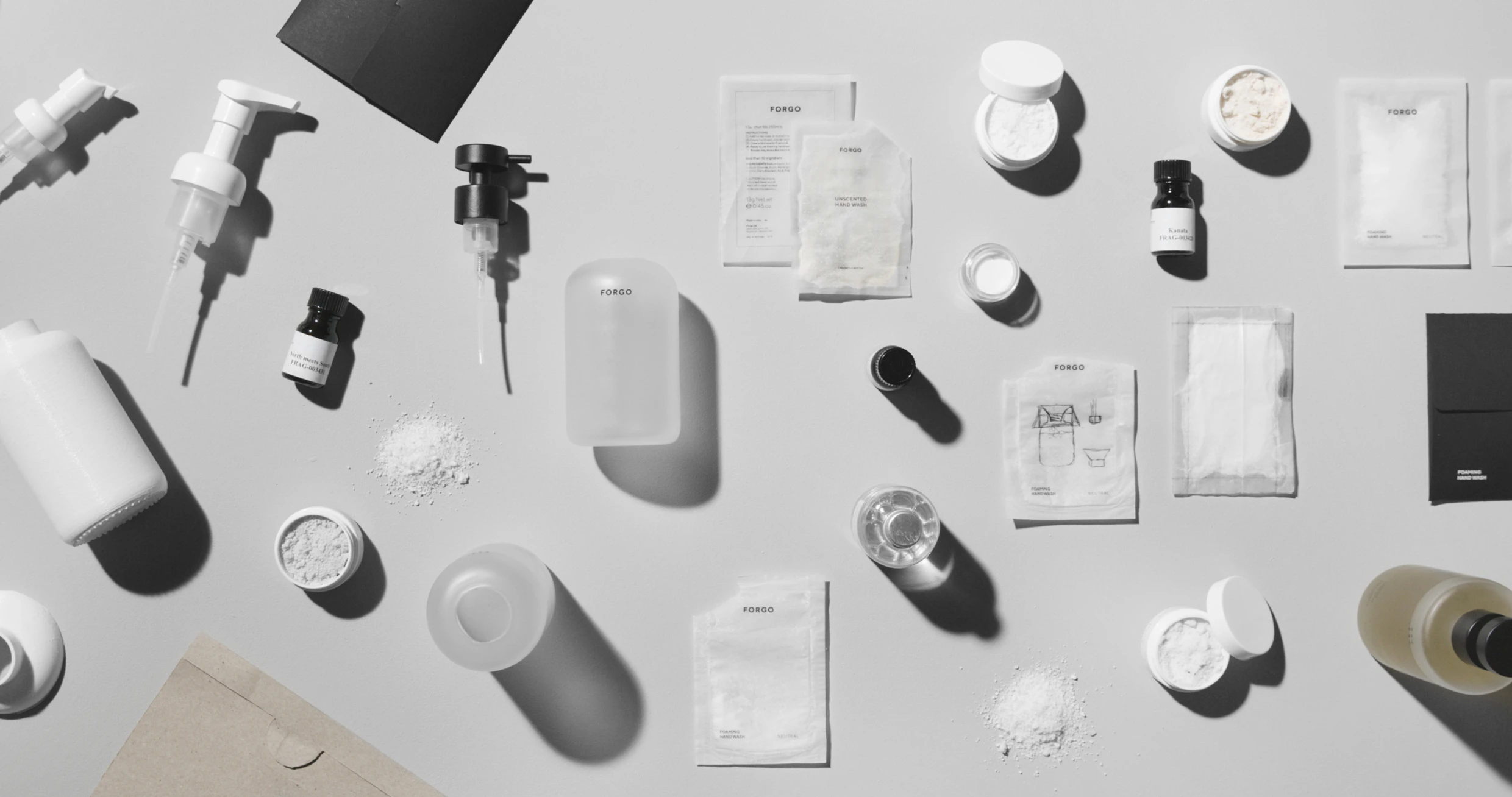
“What we learned is that it wasn’t actually that hard to make something more sustainable,” he says. It took time to find the right partners for production. But the basic ingredients in the soap aren’t new. “All of the ingredients we use have been around since the ’80s. There’s no real reason someone couldn’t have done this 40 years ago, except for maybe the fact that the consumer wasn’t ready for it.” Consumer sentiment has changed: In a 2019 survey of American consumers, more than 80% said that if they would buy products that didn’t use single-use packaging if given the option. (65% of consumers now feel very concerned or extremely concerned about plastics in the ocean; only 58% are as concerned about climate change.)
Forgo is launching on Kickstarter soon to start its first production run, and will soon develop other products. It also expects that larger companies may begin to copy its approach–which isn’t necessarily a bad thing. “We’re happy to see that there is this incentive in the industry to make these changes,” says Libermann.
Recognize your brand's excellence by applying to this year's Brands That Matters Awards before the early-rate deadline, May 3.
